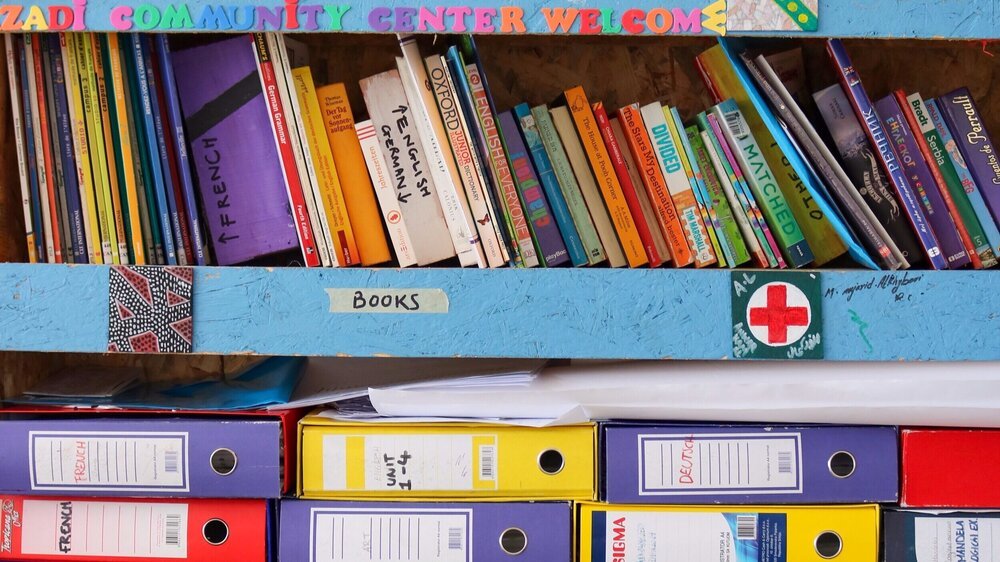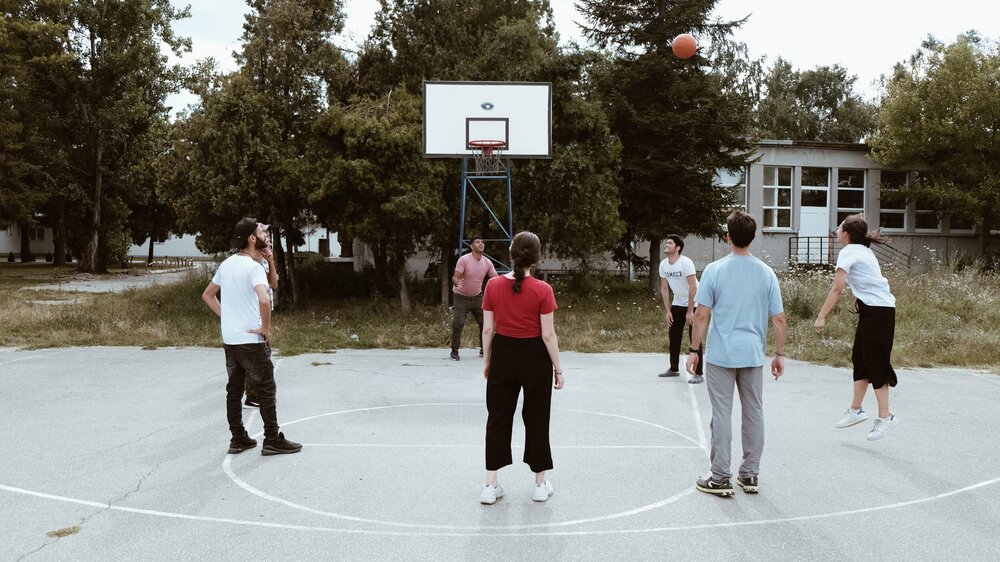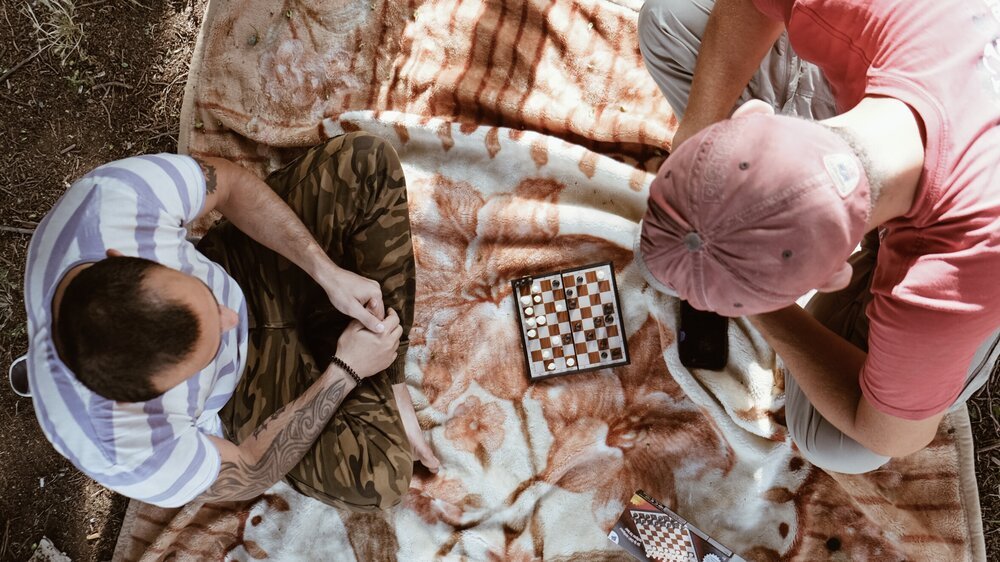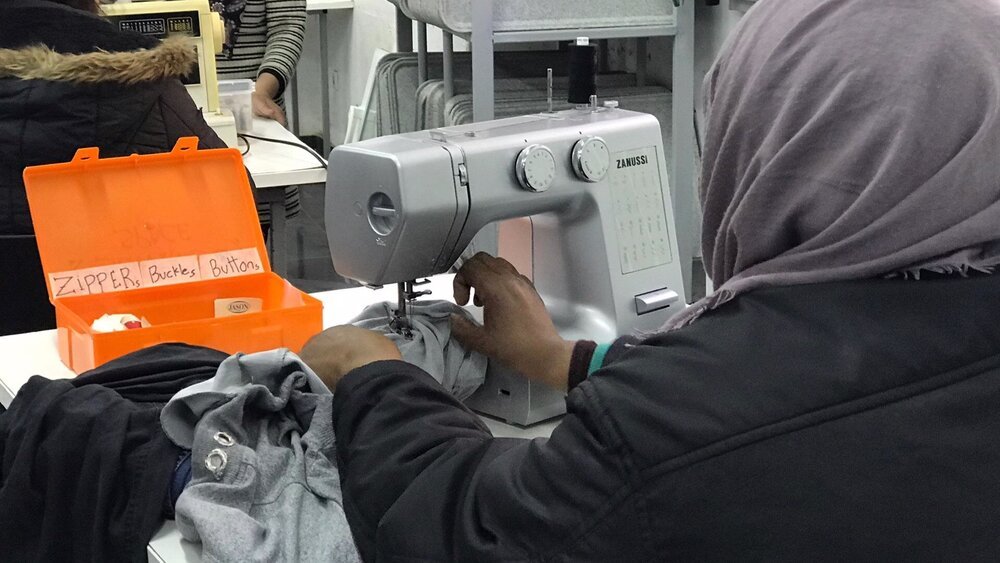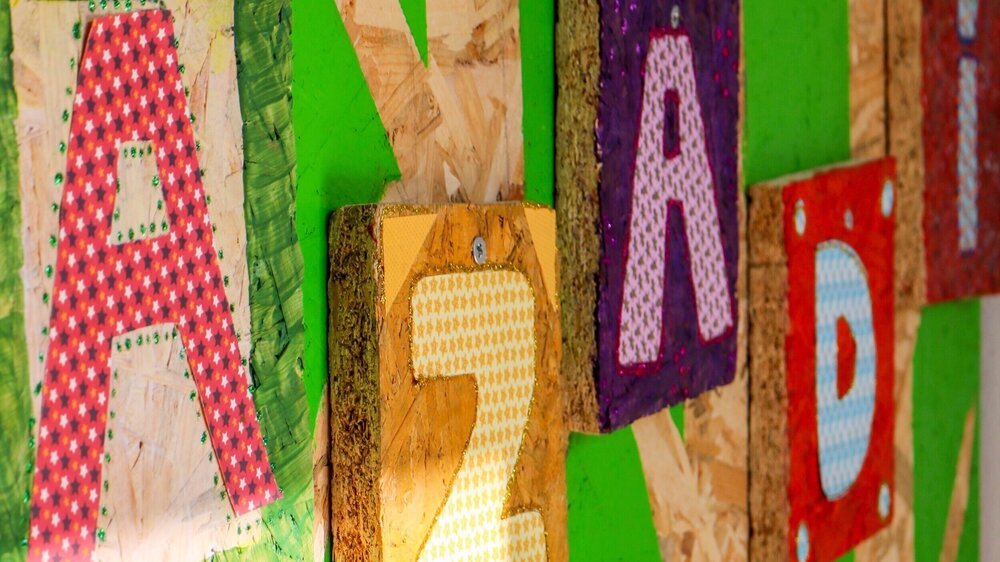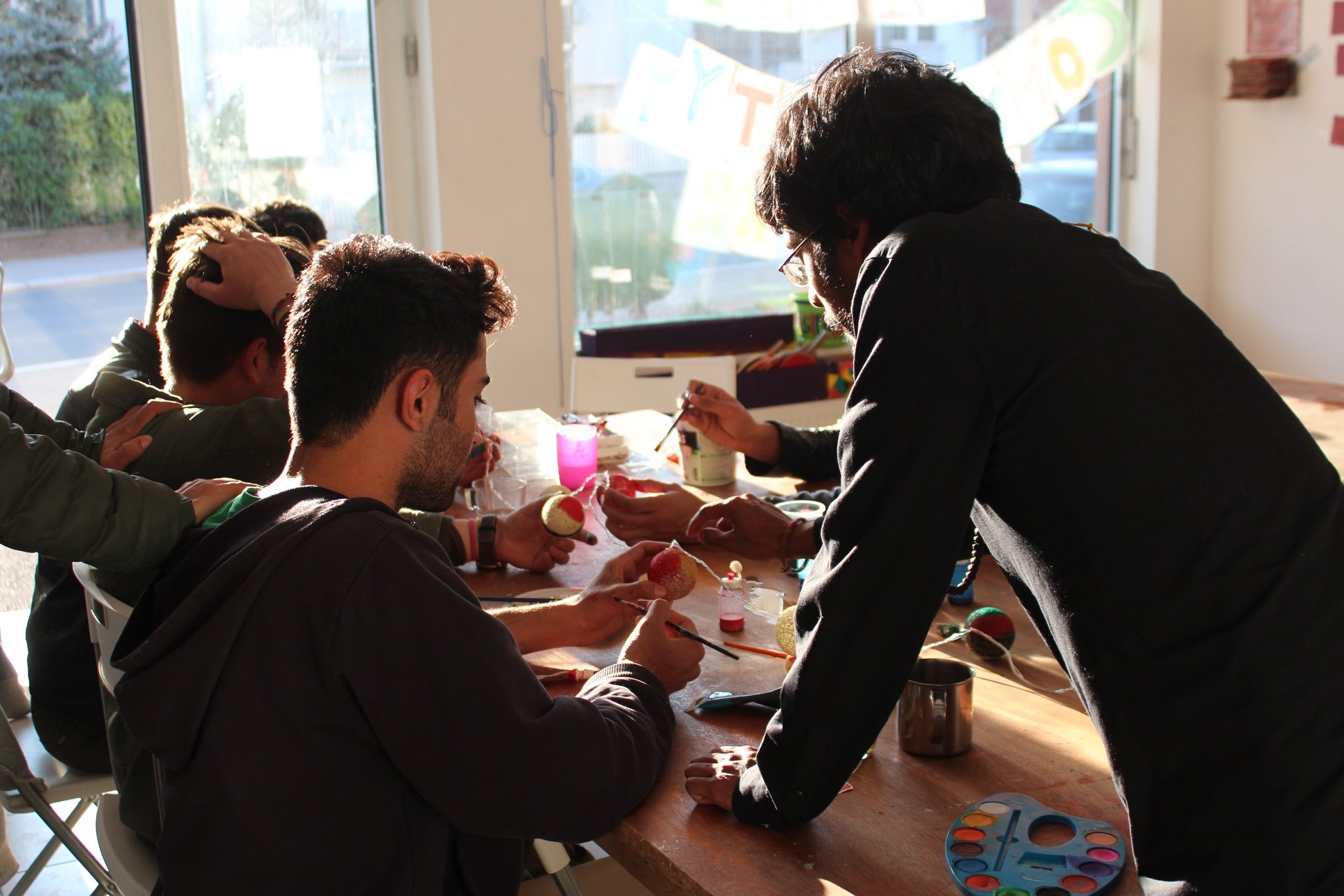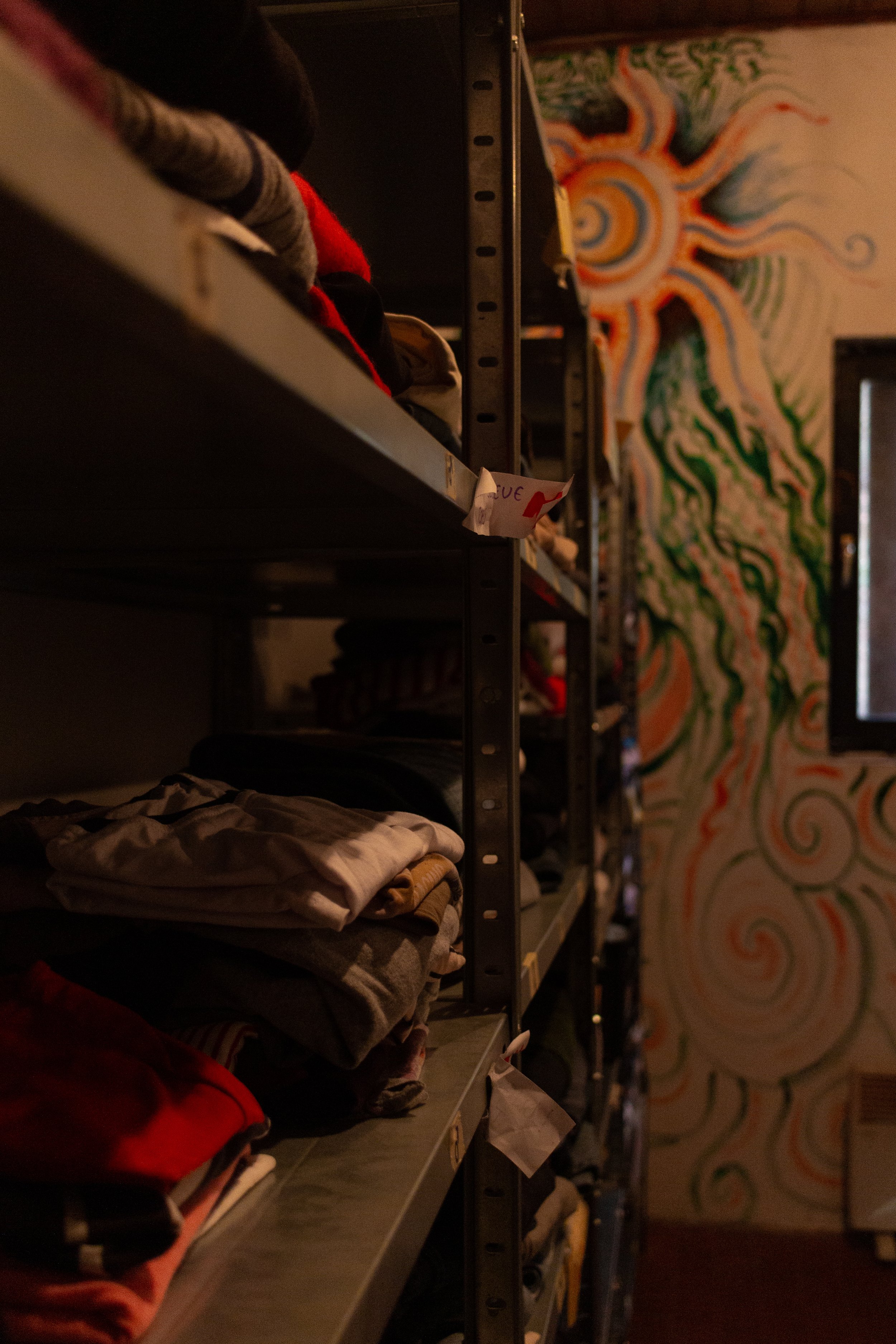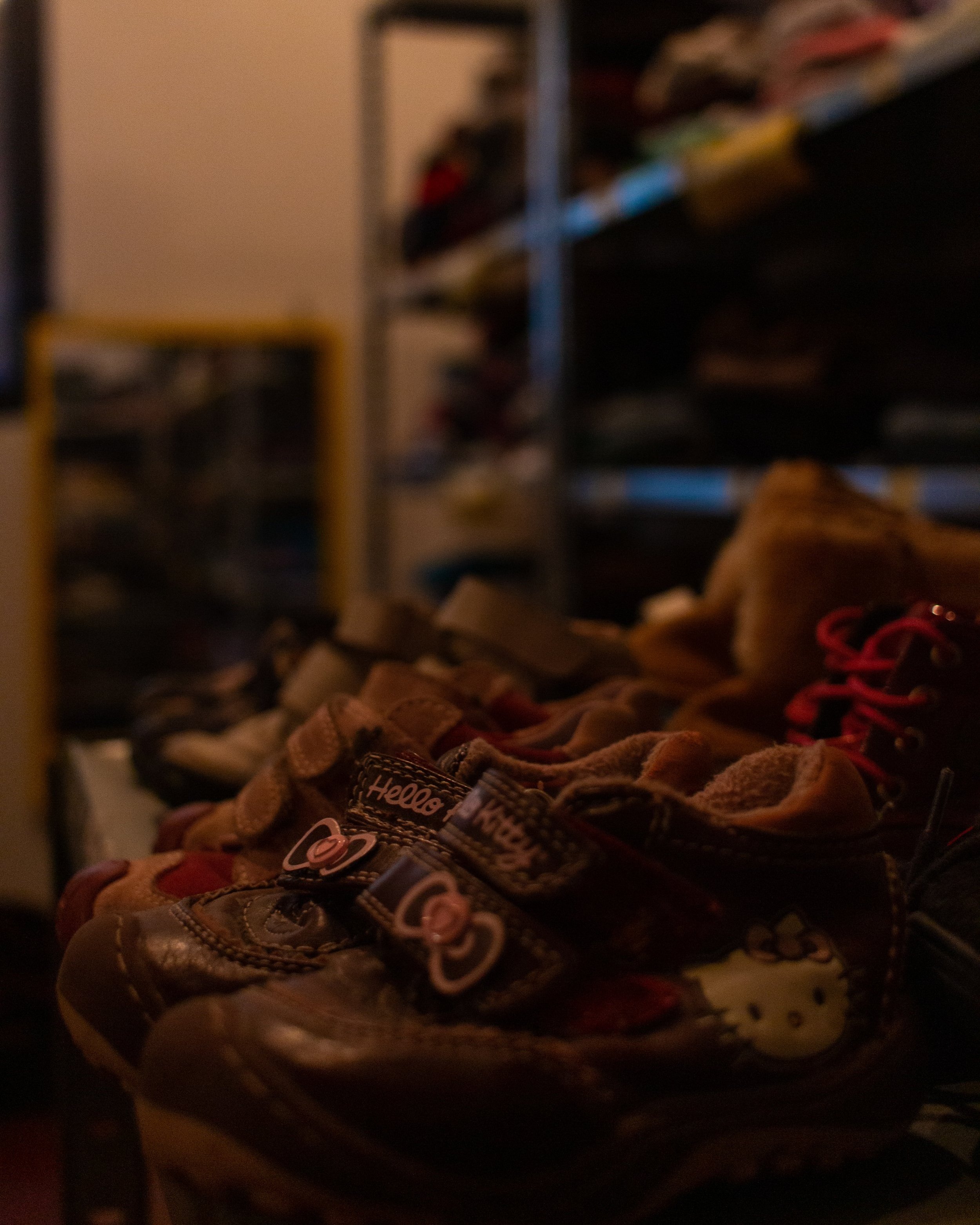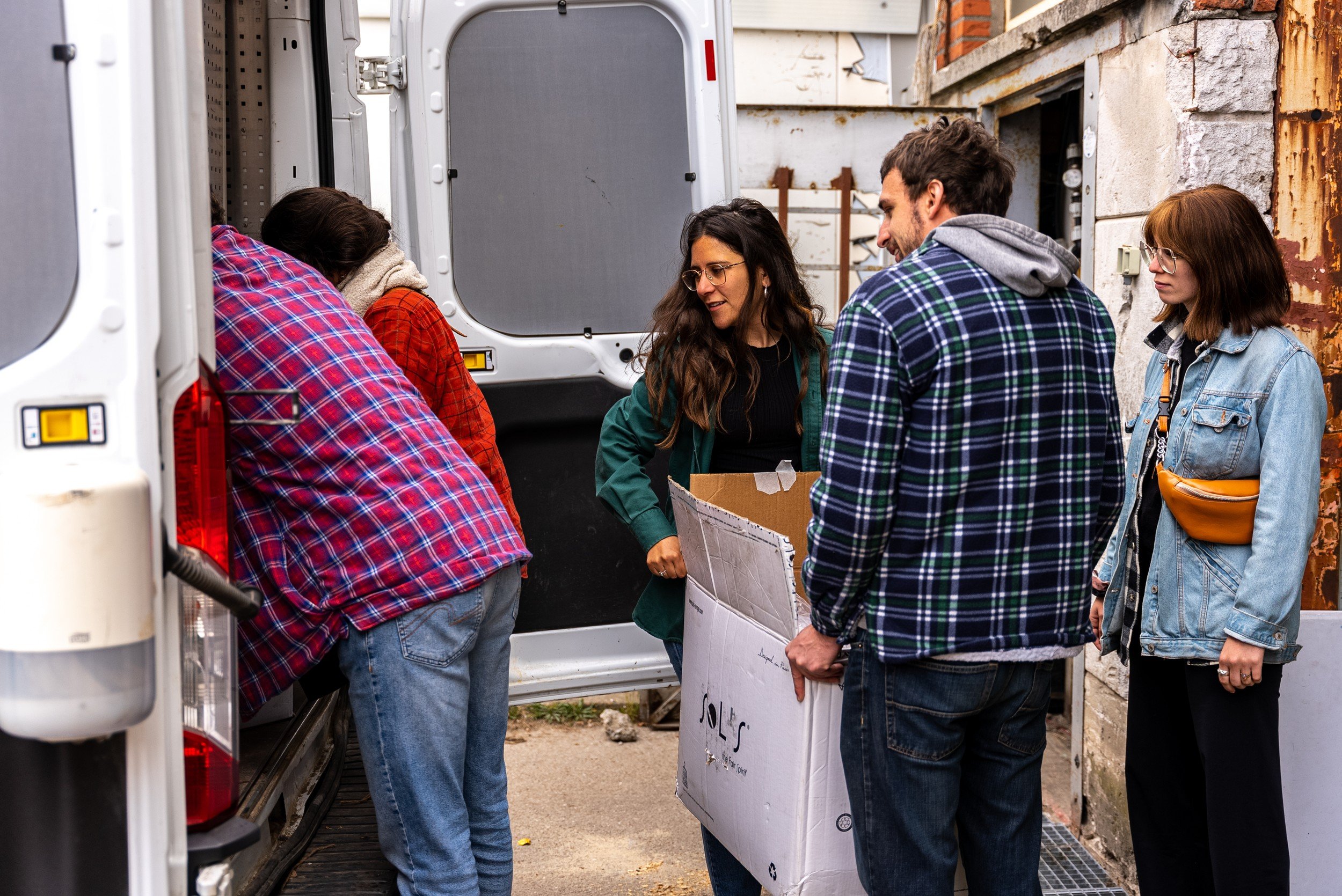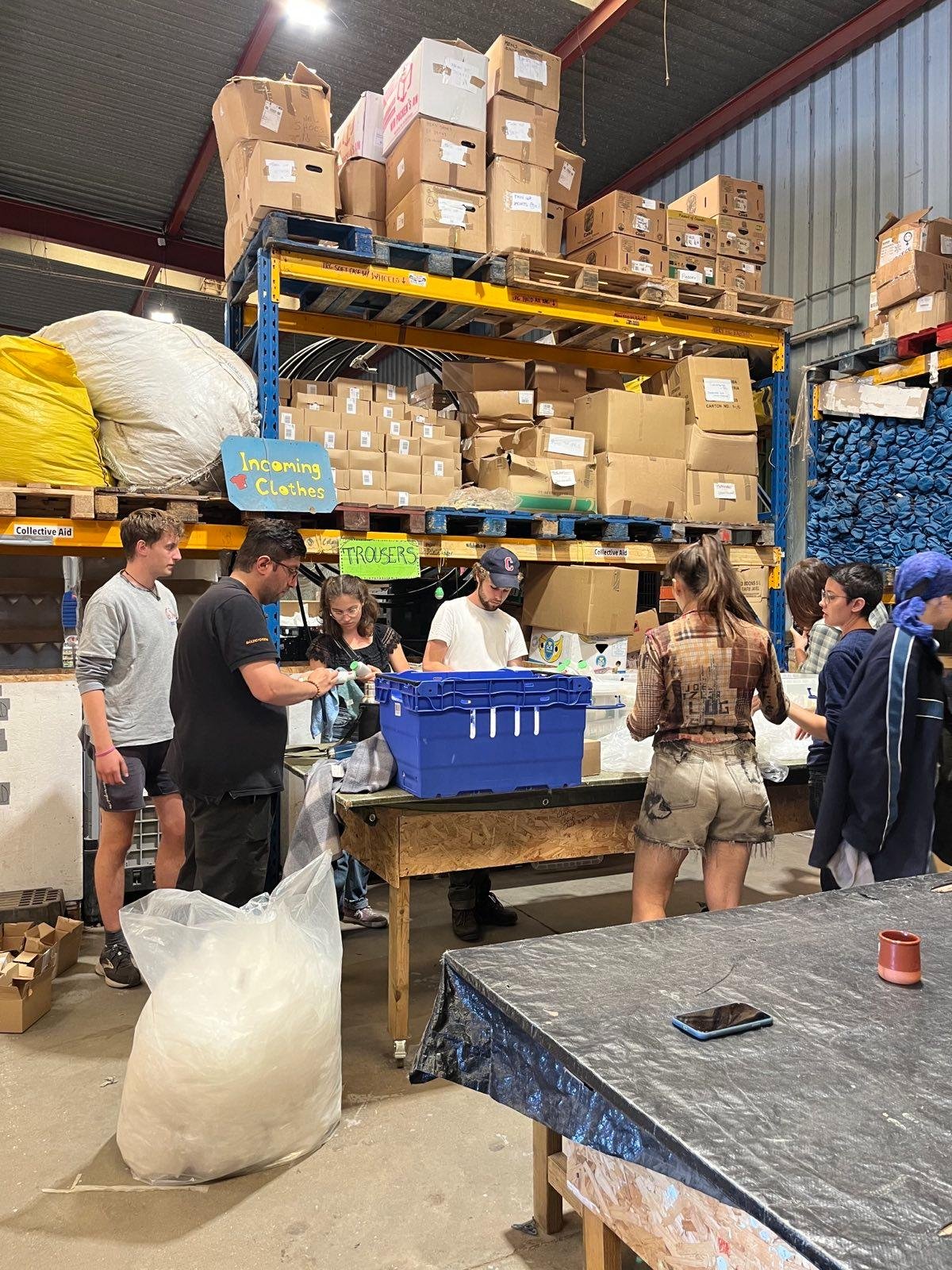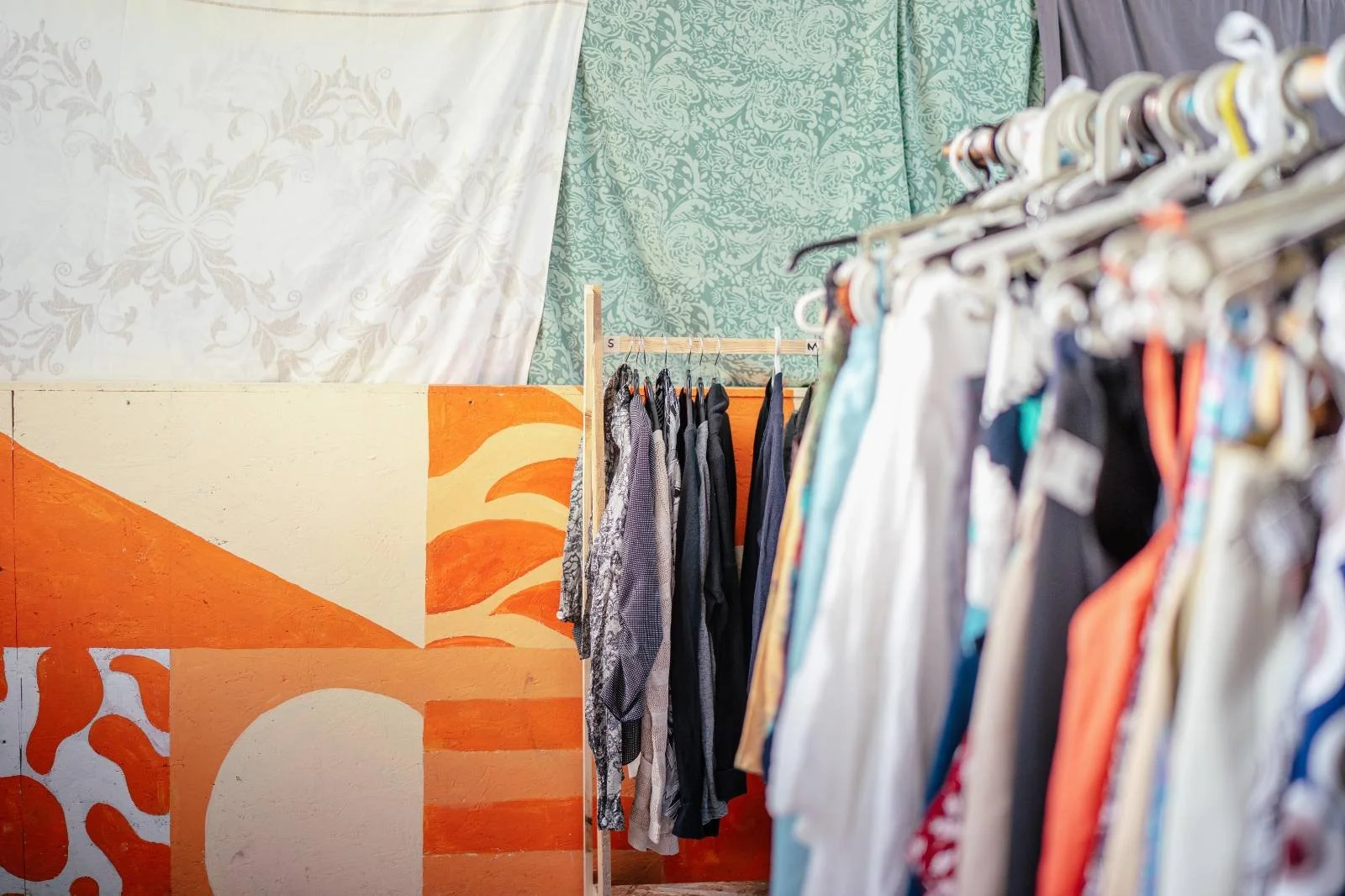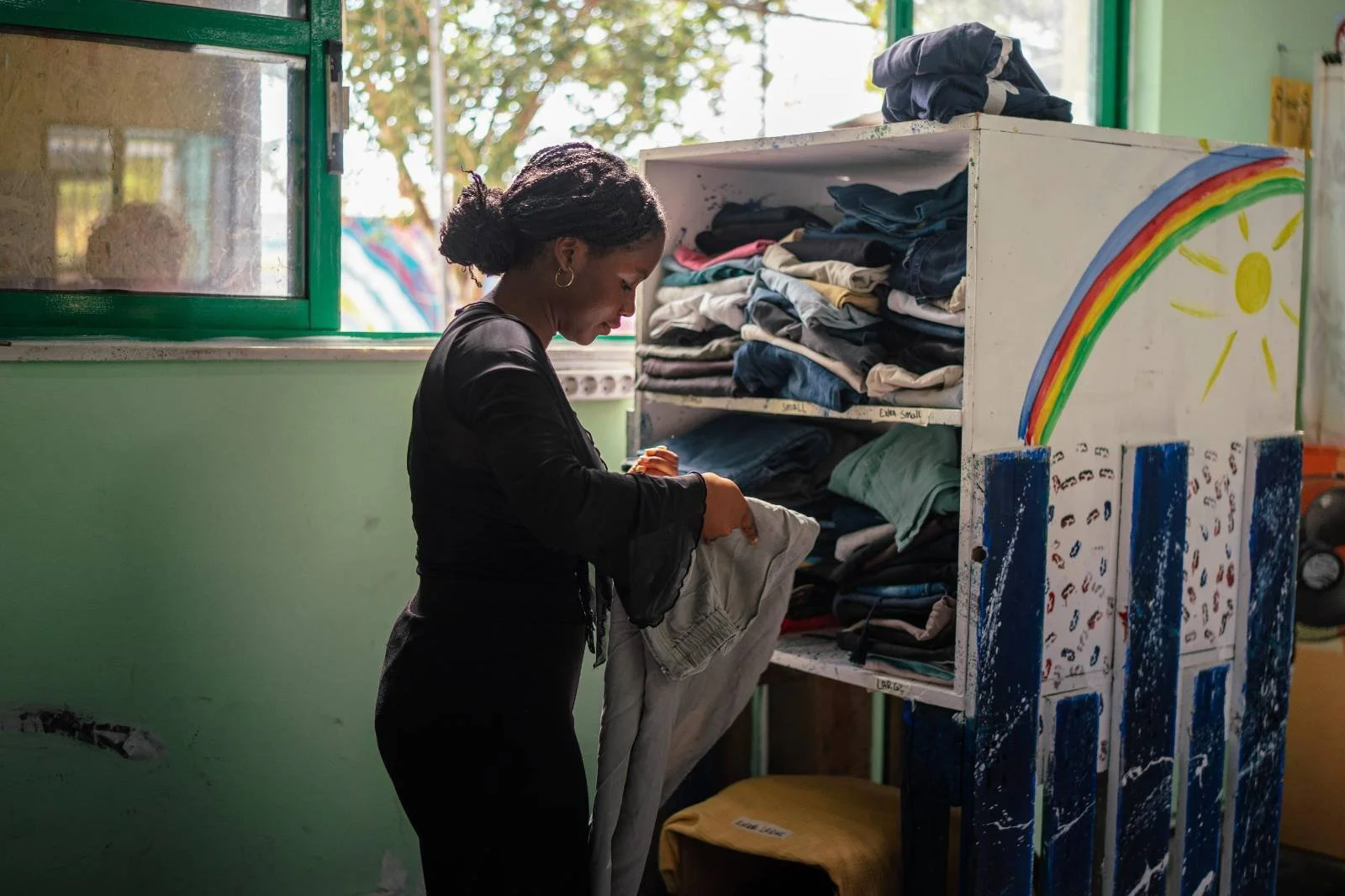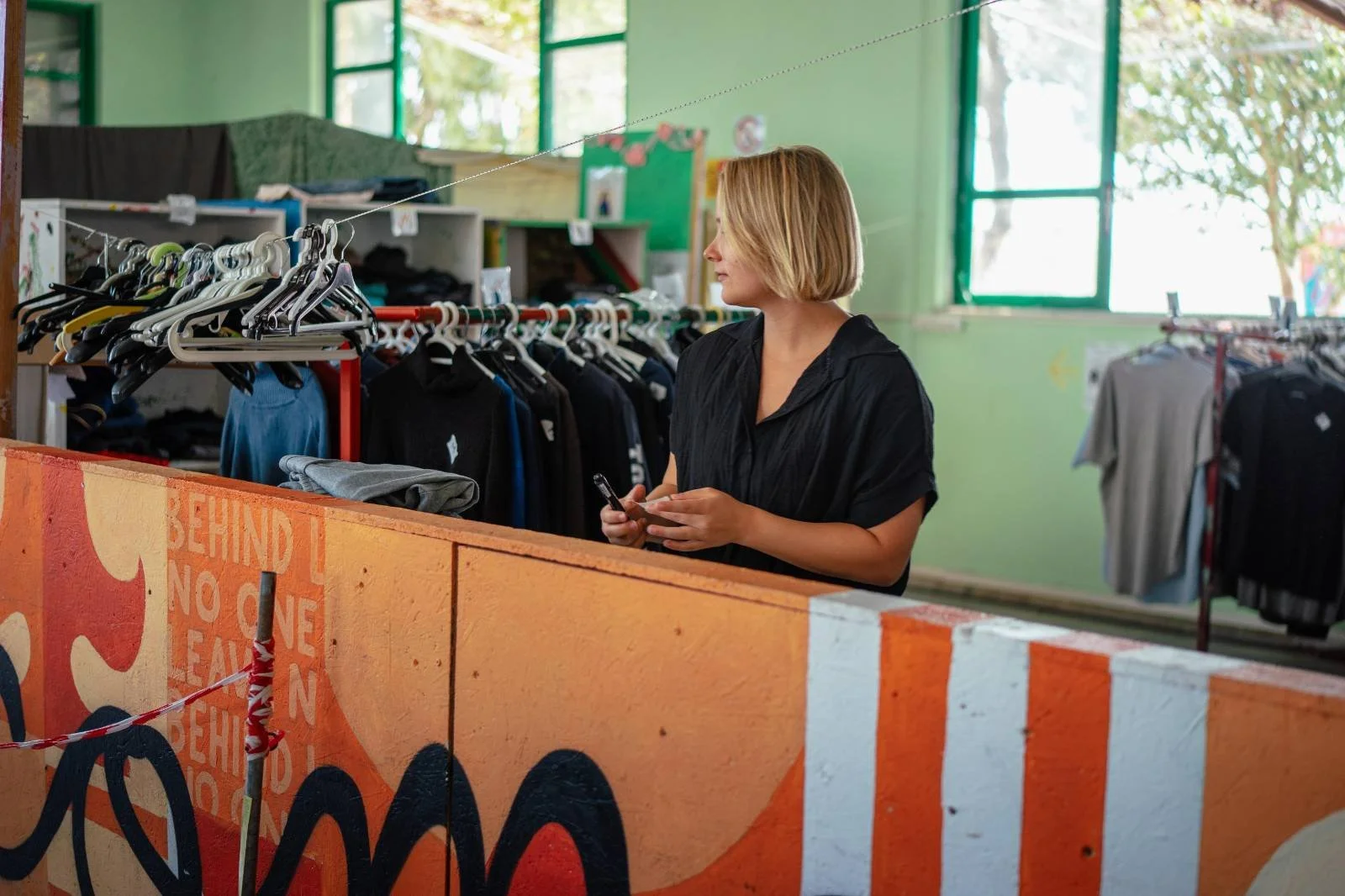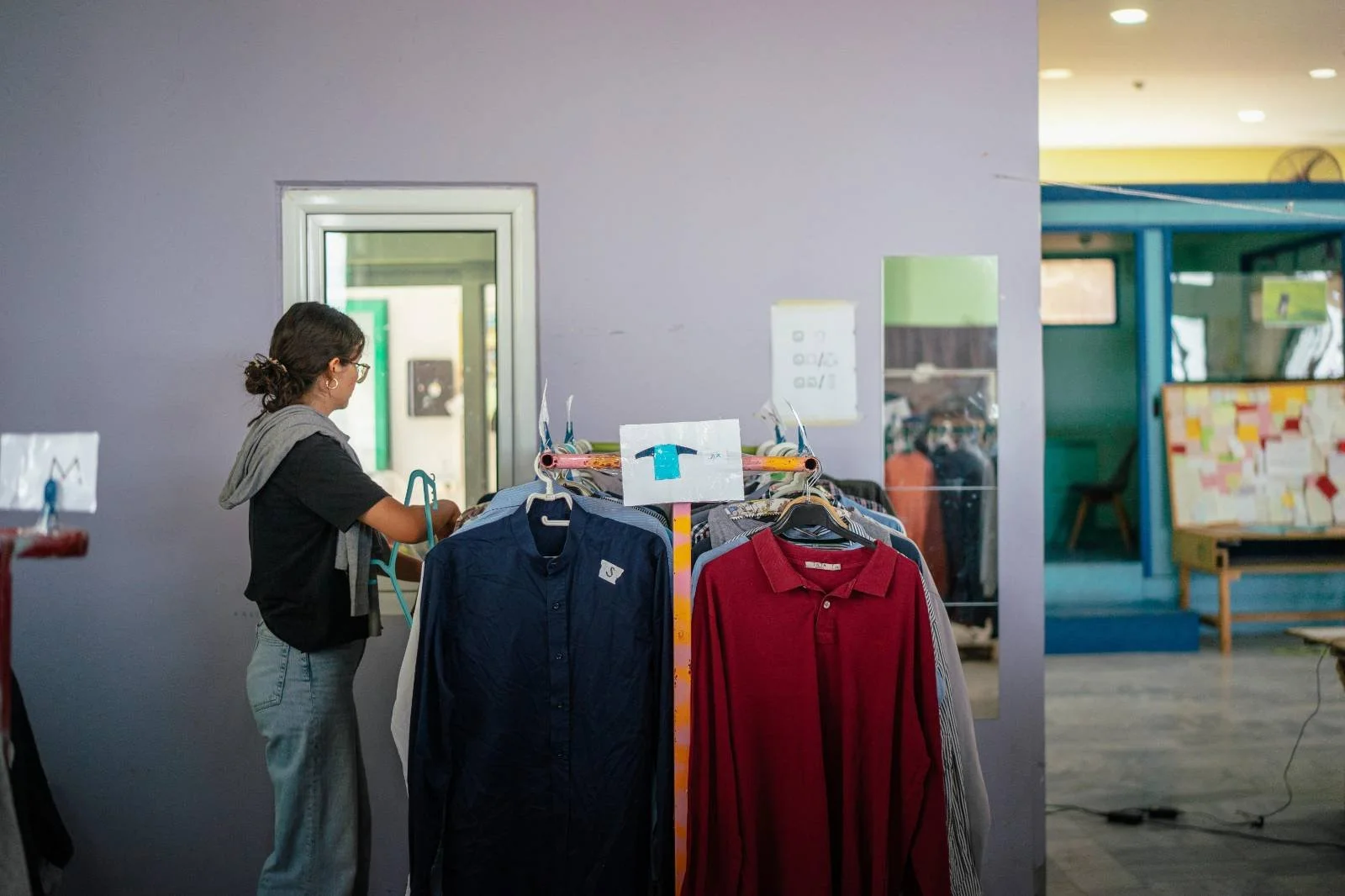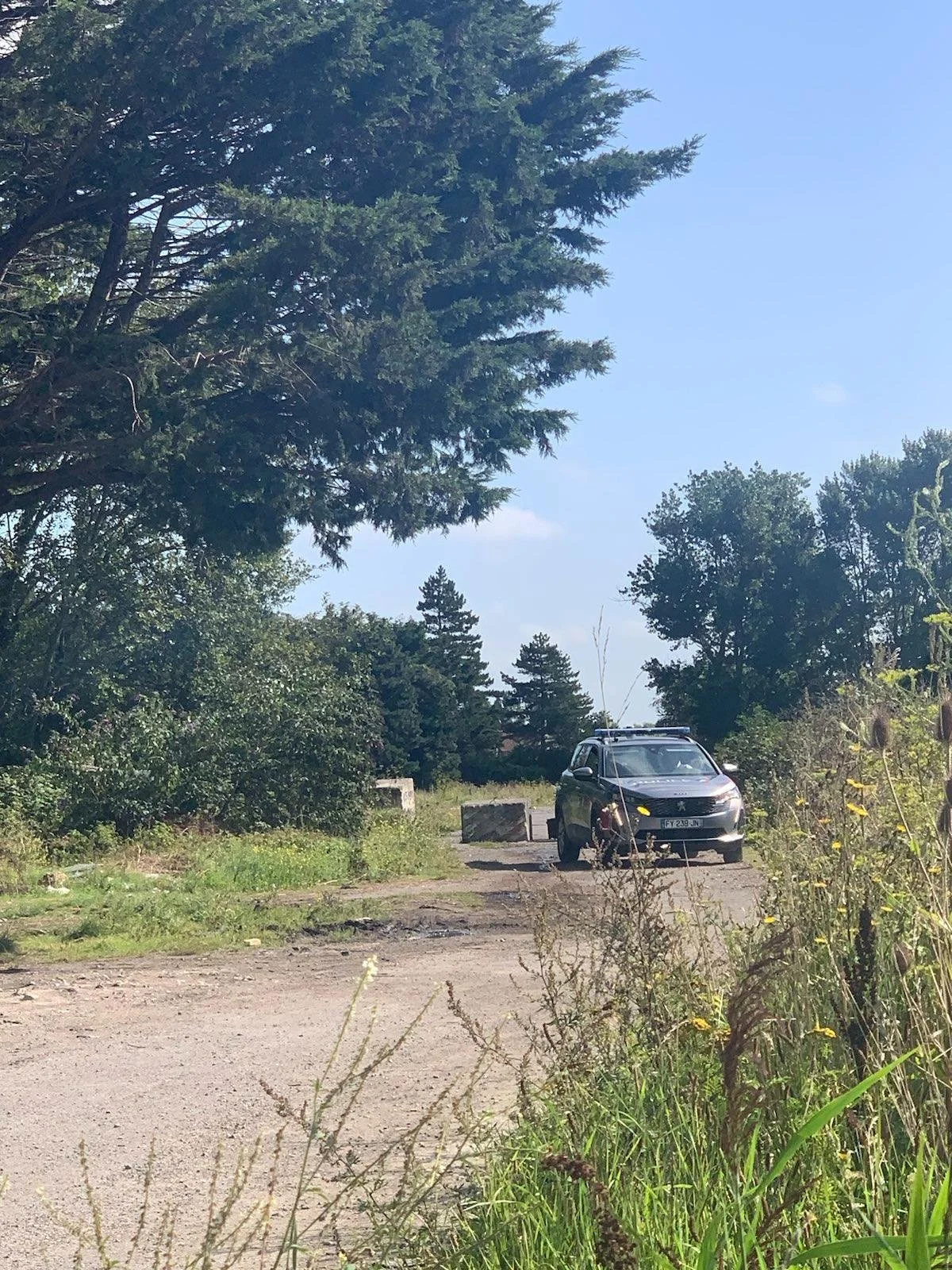Founded in 2017 as “BelgrAid”, we started in Serbia. Today, we operate in Bosnia & Herzegovina and Greece, while supporting a range of partners across Bulgaria, Poland, France, the UK and even the US, all because of one simple truth that drives us: no person should die while searching for a better life.
We originally emerged as a response to urgent need in Belgrade, a handful of volunteers from Greece who opened a warehouse kitchen and began distributing meals and essential supplies to people on the move in March 2017. That vital and effective act of humanity became the foundation of Collective Aid. Over time, as routes shifted and needs evolved, our mission remained: deliver real human-centred support where systems fail.
Serbia
Where we began
In March 2017, the BelgrAid kitchen opened in Belgrade. Every day, the team there prepared and delivered hot meals to people living around the Belgrade Barracks. As the situation in the barracks deteriorated, the team adapted and in November 2017, they opened the Azadi Centre in Obrenovac, named after the Kurdish word for freedom. It became more than a kitchen and was described as a place of lunches, film nights, small activities, and community in a moment otherwise defined by displacement.
By July 2017, we expanded north to Subotica, on Serbia’s border with Hungary. The project was originally run by the NGO Fresh Response, which handed it over to BelgrAid that summer. As Subotica became the front line of Europe’s externalised border policy, we were one of the few services ensuring people could access food, showers, and basic supplies. In 2018, Subotica’s shower service had to pause due to logistical barriers, but was rebuilt by 2019. By 2020, the focus shifted decisively to WASH (Water, Sanitation & Hygiene) provision. That year, and into 2021, the team expanded its services, supported by Médecins Sans Frontières (MSF), who provided mobile shower trucks, while food and NFI (Non-Food Item) distributions continued in parallel, allowing the project to meet multiple needs simultaneously. Our relationship with MSF continues to this day.
At the same time that we were operating in the north, we kept a vital initiatives in Belgrade where we operated a much loved laundry project. It began with a blunt observation that after food and shelter, clean clothes were one of the biggest unmet needs in the city at the time. Many people had no access to washing facilities for weeks and as such we converted an unused building into a functional laundry, powered by volunteers and supported by local partners. More than just a hygiene service, it became a social hub, a space for conversation and human connection in an otherwise dehumanising environment as the city became increasingly hostile to people spending time in the parks of the city.
Between 2022 and 2023, Serbia saw the highest concentration of people on the move in Collective Aid’s history and the Subotica project became one of the largest humanitarian projects in Serbia. However, by the end of 2023, an extensive joint operation by the police and military enforced the closure of informal settlements and reshaped the route through Serbia completely. Overturned migration dynamics and increased securitisation meant we needed to fundamentally rethink our operations and the Subotica programme became the anchor of our operations as we closed our services in Belgrade: redirecting resources and energy toward Bulgaria, where new humanitarian gaps were emerging, reports of serious abuses were escalating and local civil society was reaching out to us.
Today, the Serbia team still operates as one of our largest projects, focussing on strategically delivering mobile aid directly, supporting local partners who offer complementary services, and primarily investing energy in investigative research and advocacy. It remains our longest-standing programme and the exemplar of our ethos to adapt fast and stay close to the needs.
Bosnia & Herzegovina
Cooking, Adapting, Persisting
In August 2018, our programming turned to Bosnia & Herzegovina, where increasing numbers of people or organisations were facing similar pressures to those we were seeing in Serbia. The city of Sarajevo became our next base. By September 2018, our volunteers were there cooking in a street kitchen that quickly expanded into a camp kitchen at Usivak, outside the city. Working alongside partners like Aid Brigade, BAB, BASIS, and CADUS, we provided hot meals, NFIs, showers, and medical support: a collective humanitarian effort built from cooperation and necessity.
By mid-2019, as local partners took over the Usivak kitchen, we transitioned towards mobile action that would prove to be vital in the following years. As we decided to focus efforts on NFI distributions across Sarajevo and surrounding areas, we handed over the cooking operations to local Bosnian civil society actors, who still use our recipes.
In 2020, the Sarajevo team launched a glasses project, in partnership with a local optician and whenever funding allows, this initiative offers a small but powerful action that supports those who have often not seen opticians in years.
Over time, the Bosnia & Herzegovina programme has become a model of our adaptive actions and mobile delivery programming: ensuring light, flexible, and deeply rooted support for people and communities.
France
Solidarity, Change, Scale
In May 2019, Choose Love asked us to take over their Calais warehouse and operations. At that time, thousands of people were stranded in makeshift camps near Calais, Dunkirk, and Grande-Synthe. When we arrived, we partnered with Auberge des Migrants and other partners to deliver NFI distributions: tents, sleeping bags, clothes, hygiene items In April 2020, during the COVID-19 pandemic, when many organisations were forced to pause, we stepped up and we added a set of other services including phone charging stations and water provision.
The following years brought turbulence. In 2021, we lost a major donor and were evicted from volunteer housing, then later the warehouse itself. We relocated multiple times, eventually returning to the Auberge des Migrants warehouse in November 2021. Amid instability, we developed an innovative tent referral system, ensuring fairer and faster distributions based on verified needs from our partner network. In March 2023, we then achieved a major milestone and opened the first-ever WASH Centre accessible to displaced people in Calais. For the first time, people could shower, wash clothes, and recharge safely and with dignity.
But progress was met with resistance. In March 2024, due to funding shortages and a closure order from Calais Town Hall, the WASH centre was forced to shut. We fought the decision for months, even launching a mobile laundry service to fill the gap: then ultimately, in Winter 2024, we paused operations in Calais altogether. This decision was taken not out of defeat, but to ensure our civil society partners locally had the resources to continue tent distributions through the winter. We now maintain a monitoring and support role, ready to restart direct operations as soon as strategic value and humanitarian need align.
Calais remains one of the clearest expressions of who we are: defiant, collaborative, and relentless in the face of institutional hostility.
Greece
A new Chapter in an Old Crisis
In Spring 2024, Collective Aid was invited to take over a free NFI shop on Lesvos, one of the historic epicentres of Europe’s migration crisis. Conditions on the island had sharply deteriorated; the needs were enormous, and few actors were left with the capacity to respond. Drawing on our experience running adaptive NFI programmes in Serbia and France, we redirected part of our Serbia budget to establish operations in Greece and this project represents a return to the core of our approach: meeting immediate needs through practical, dignified solutions, while maintaining the agility to respond to changing border dynamics.
In Summer 2025, we then took charge over the Laundry services historically operated by Leave No One Behind and expanded our advocacy and research on the island to fill gaps left by other actors on the island leaving, responding to escalating gaps and decreasing civil society presence on the island.
Lesvos symbolises both continuity and renewal for Collective Aid, although it is a highly complex place to operate, we continue with the same spirit that we began with in Belgrade.
International Programme
Building the Backbone
By 2022, it was agree that Collective Aid was no longer a collection of field projects but a cross-border network. To sustain that, we created the International Programme: a core team designed to resource, support, and strengthen everything that works towards our mission, coordinating action to improve the work of Collective Aid programmes and local civil society across borders.
It began with two roles: the Fundraising & Grants Manager and the Strategy & Impact Manager. Their roles entirely focussed on ensuring our field work informed our organisational direction, and that every euro and volunteer hour counted. The goal of this being to build experience, expertise and resources for the work of our services and our partners.
In April 2023, we added an Advocacy & Communications Manager to the team, as we began integrating storytelling and public engagement into our cross-project strategy. In October 2023, they were then followed by the HR Manager, who oversees recruitment and welfare. By March 2024, we brought in a Donations Coordinator, managing material donations and warehouse logistics for all programmes, a crucial link ensuring our resources move where they’re needed most. Most recently, we have expanded with a collection of part time roles to support us in areas where we have particular need for niche expertise: bringing in two grant writing experts in May 2025, then a communications expert and bookkeeping expert in October 2025.
This international layer exists to sit behind all the work of our programmes and our partners. It exists to give every project the structure, funding, and coordination to thrive.
Our history is a record of adaptation, of learning from crisis after crisis without losing sight of our purpose. From Belgrade to Lesvos, we have built a model of multidisciplinary humanitarian aid paired with systemic awareness. We do the necessary day by day work, we clean, we repair, we deliver. We advocate, doing the research, investigation and fact checking. And we do the local civil society work, building relationships, sharing practices and delivering resources.
We do what is needed, where it is needed because what we do is necessary.
That is why we stay. We stay long after headlines fade because we have evolved from emergency responders into a strategic humanitarian coalition of efforts seeking to not just meet needs but challenge the systems that create them.



